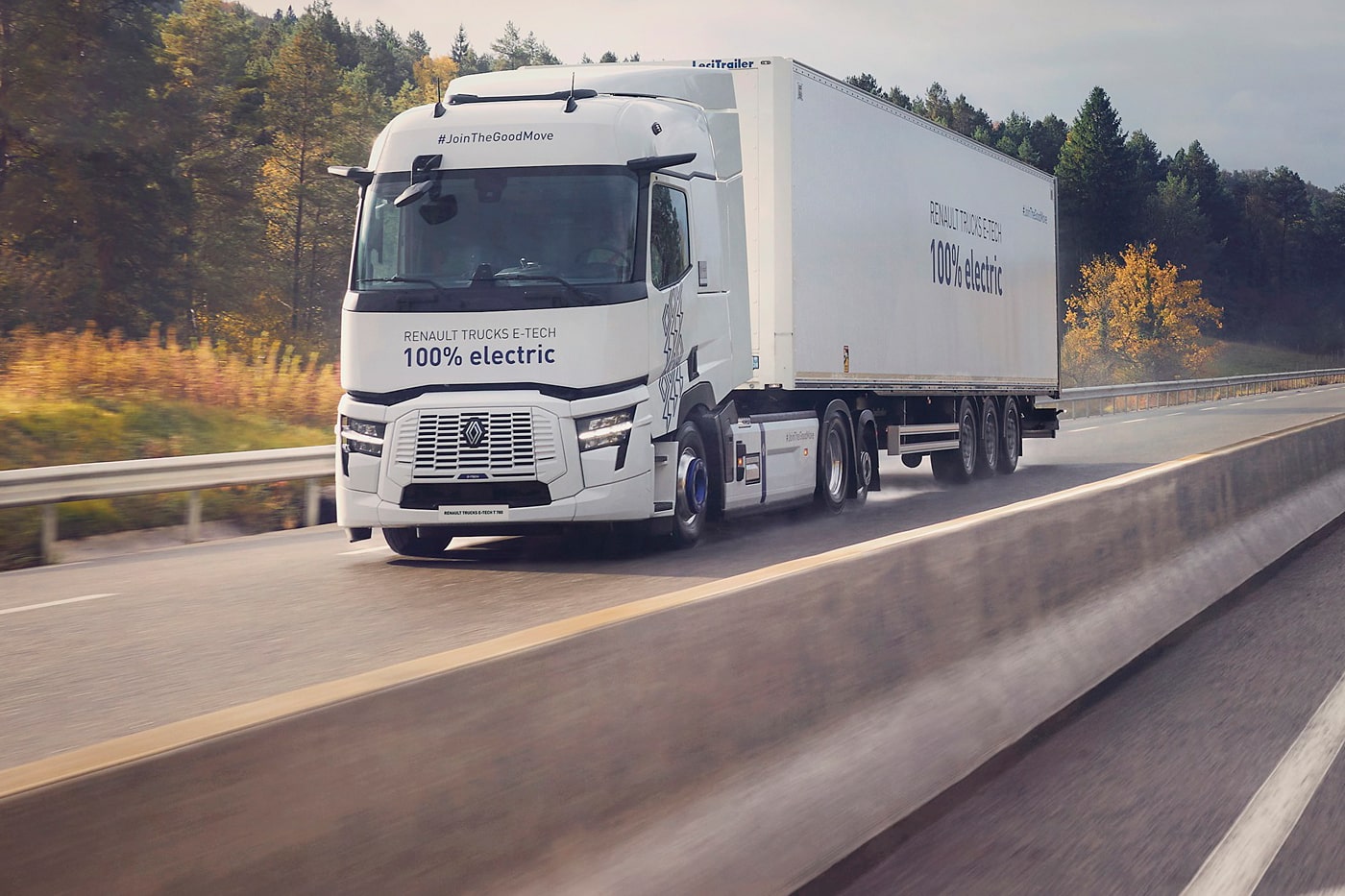
World premiere: Renault Trucks unveils E-Tech T 780 with a range of 600 km
Renault Trucks has unveiled the E-Tech T 780 and its derivative, the E-Tech T 585. Although these are new members of the E-Tech T family, the duo has little in common with the company’s existing E-Tech T. These are two variants of a completely new vehicle. And this model now carries much of the eMobility hopes of the entire Volvo Group, to which Renault Trucks belongs.
Here is some context: Since last year, we have known that developers at the Volvo Group have been fine-tuning a new electric truck for long-distance transport. Away from the public eye, the group has been working on the model since around 2021. Volvo Trucks has been the one to make the first announcements about the newcomer in recent months (where the model will be the new top-of-the-range version of the FH Electric series). Now, however, it is sister company Renault Trucks that is the first to put the flagship new long-distance version of the E-Tech T in the spotlight – at its home trade fair, Solutrans in Lyon. It will be on display there until November 22 as a tractor unit with a 6×2 axle configuration. The numbers 780 and 585 in the name refer to the battery capacity: the E-Tech T 780 houses eight battery packs of 97.5 kWh each, adding up to a gross total of 780 kWh. The E-Tech T 585 has two fewer packs, giving it a gross total of 585 kWh and correspondingly more payload. More details on this in a moment.
One of the most important messages from the trade fair debut: the E-Tech T with maximum battery capacity can travel 600 kilometres. “Not ‘up to’ 600 kilometres,” as Christoph Walter, Director of Sales at Renault Trucks Germany, emphasises. “But a guaranteed 600 kilometres.” This would put the E-Tech T 780, together with its future Volvo sister model, at the top of the field in terms of range. By way of comparison, the Mercedes-Benz eActros 600 – currently the benchmark for electrical long-distance transport in our part of the world – has a range of 500 kilometres, which the Stuttgart-based company always emphasises is a “conservative estimate.” Both manufacturers, therefore, claim that the specified values can be exceeded in everyday use.
It is interesting to note that these ranges are achieved in very different ways, as the battery strategies of the Volvo Group with its subsidiaries Renault and Volvo Trucks, on the one hand, and Daimler Truck with its subsidiary Mercedes-Benz Trucks, on the other, could hardly be more different. While the Mercedes-Benz eActros 600 has three very large battery packs with lithium iron phosphate cells from CATL, giving the electric truck a gross energy content of 621 kWh (and 600 kWh net), Renault Trucks has integrated eight packs with NCA cells (nickel-cobalt-aluminium chemistry) from Samsung SDI. The manufacturer estimates the energy content at 780 kWh gross and 624 kWh net.
It is a well-known phenomenon that the gap between gross value and actually usable energy is greater with nickel-based battery chemistries than with LFP cells. However, Renault Trucks is sticking with this cell chemistry in view of the higher energy density of nickel-based batteries. The previous E-Tech T in a 4×2 configuration, which the French manufacturer continues to offer in a revised form as the E-Tech T 540, and all other electric trucks from the Volvo-Renault Trucks conglomerate store their energy in NCA batteries. The first exception is the 14-ton E-Tech D14, also presented at Solutrans, which will be equipped with LFP batteries for the first time in 2026. But this is only a side note.
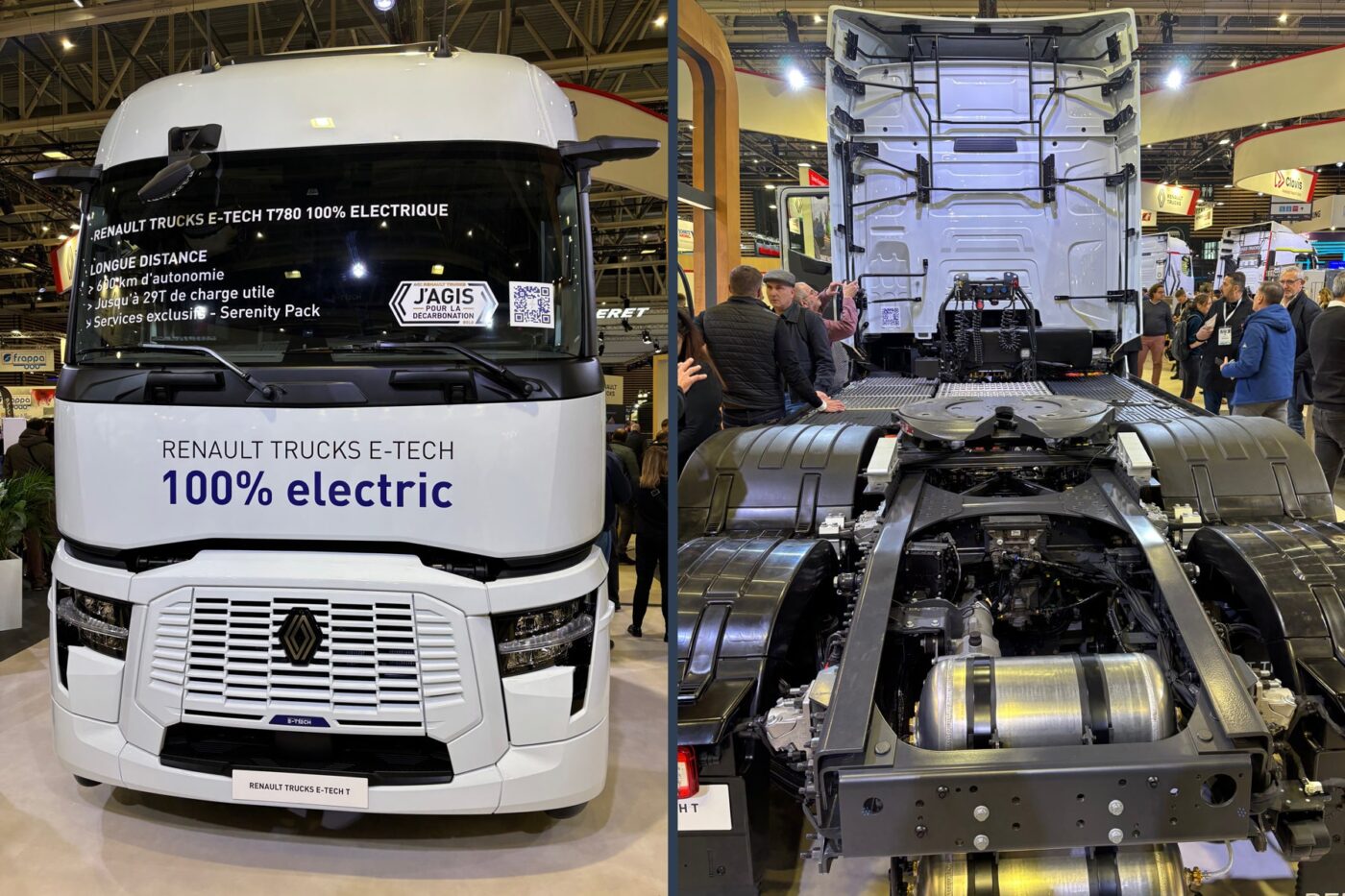
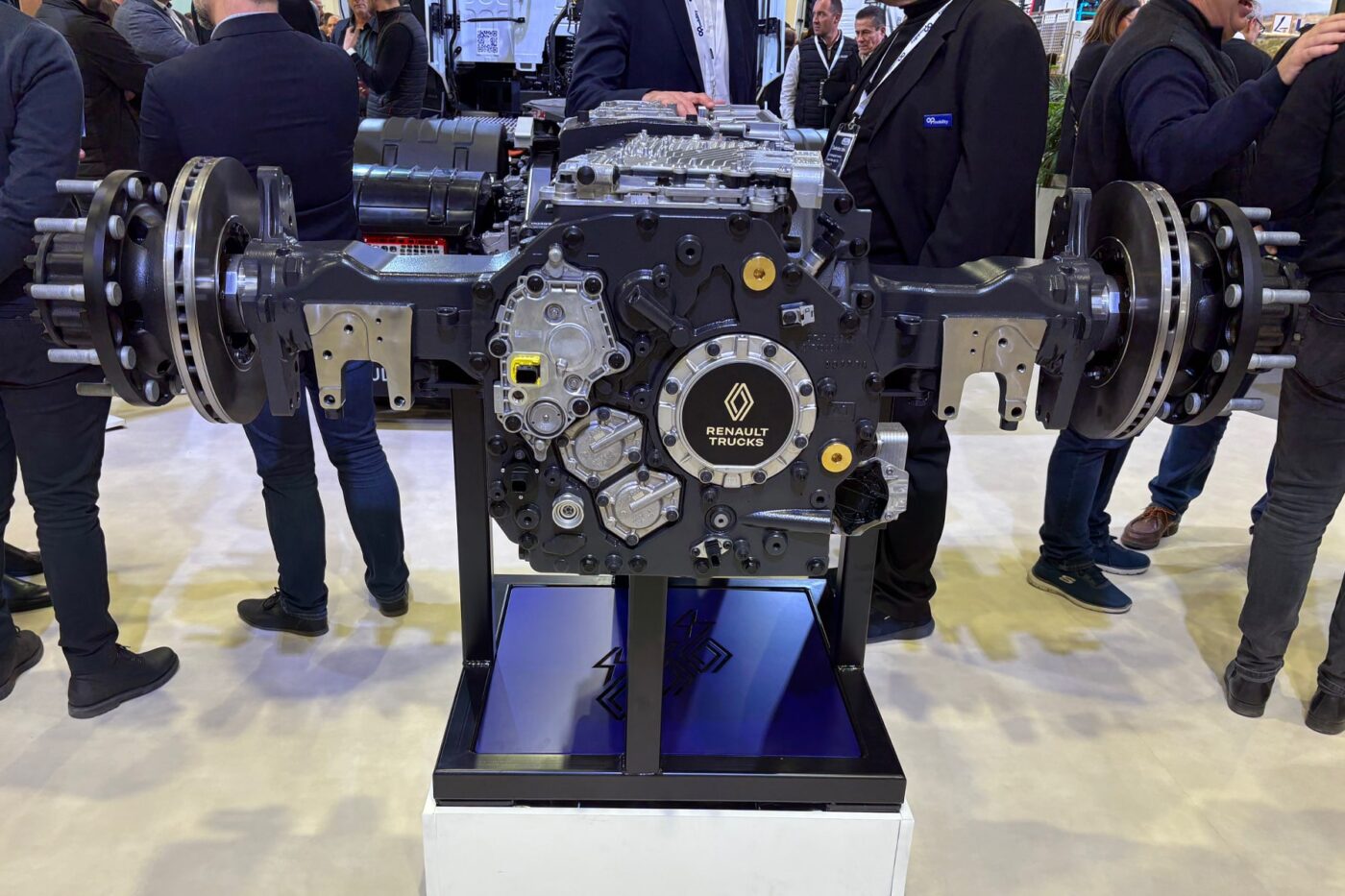
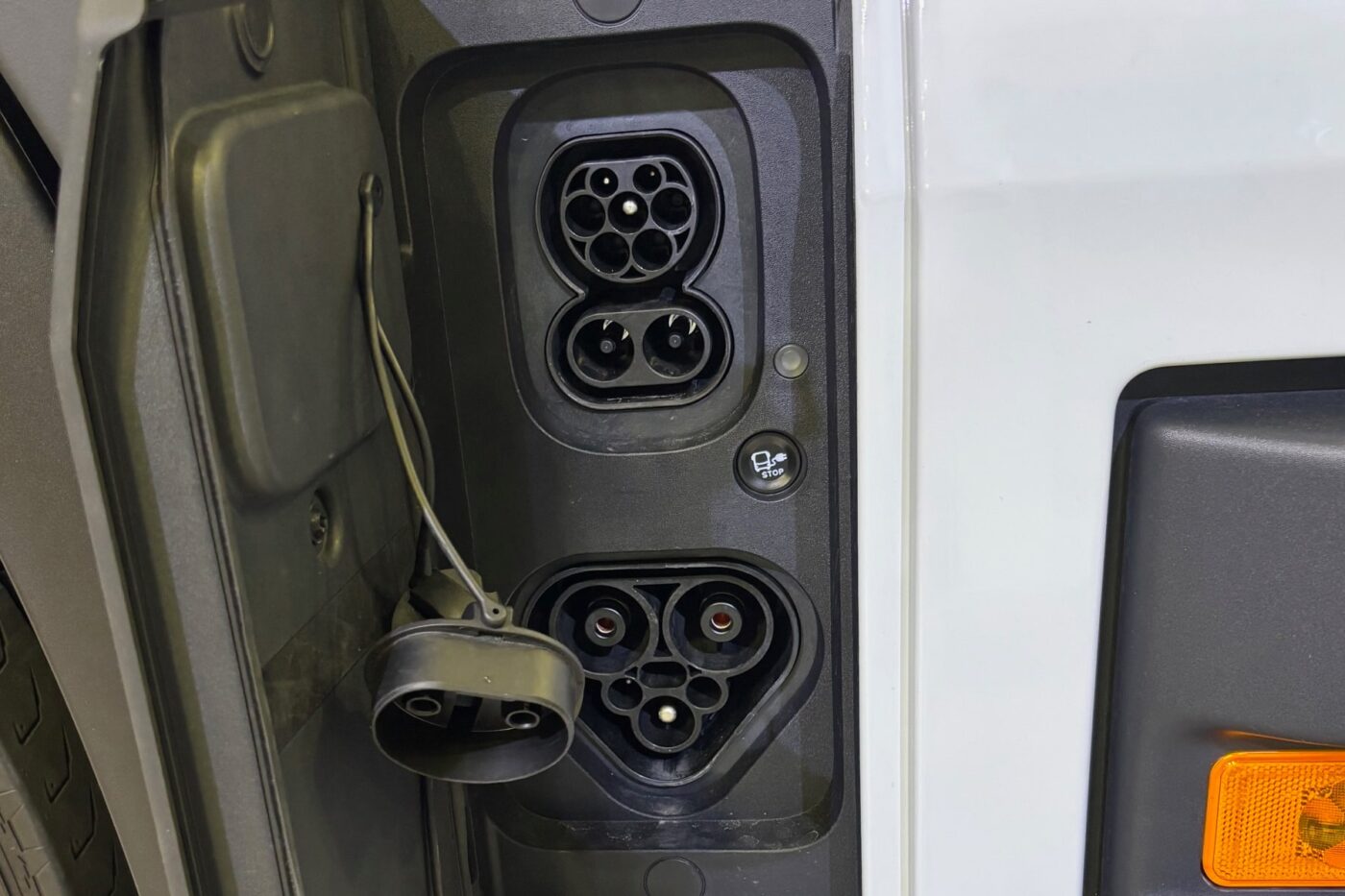
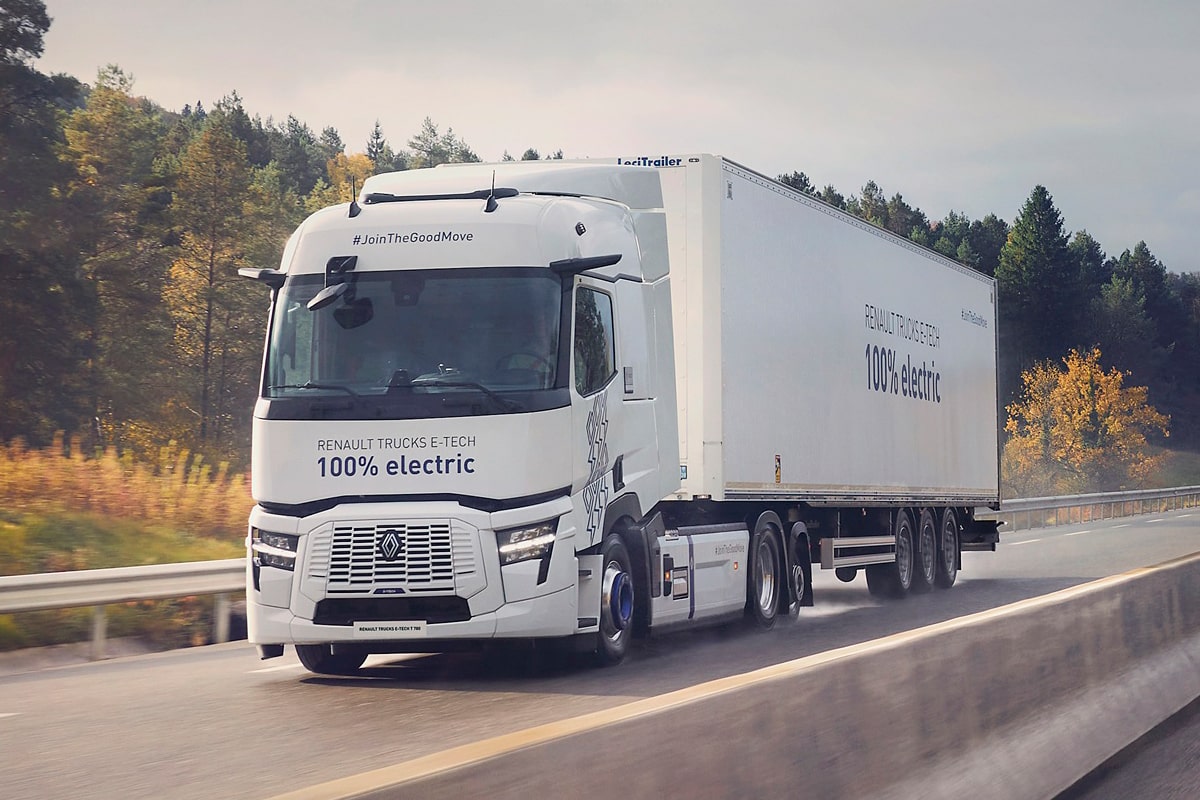
Let’s take a look at the inner setup of the E-Tech T 780 and E-Tech T 585: One key innovation is the electric axle in the new long-haul trucks. It was developed in-house by the group and differs greatly from the I-Shift transmission with three electric motors that has been widely used in the Volvo Group to date. The one-tonne electric axle is located far to the rear and houses the transmission and two electric motors with a total peak output of 460 kW. Its use is intended to create space to accommodate significantly more battery capacity between the axles than in the previous range of electric trucks.
The French manufacturer specifies the wheelbase of the E-Tech T 780 as 4.1 meters and that of the 585 as 3.6 meters, as the latter does not require the two additional packs mentioned above. For the six and eight battery packs themselves, Renault Trucks has not opted for cuboid units, but has packed the prismatic NCA cells into L-shaped housings. These are located on both longitudinal beams of the semi-trailer and, thanks to their L-shape, also make use of the space under the frame structure. Each battery unit weighs around 600 kilograms. The E-Tech T 585 thus saves 1.2 tons in battery weight and is therefore considered “payload-optimised” by the French company. According to the data sheet, it has a range of 460 kilometres and a payload (taking into account a standard semi-trailer) of 23.8 tons in markets where the maximum permitted GCW is 42 tons (40 tons plus an additional two tons for zero-emission vehicles). The 780 is specified at 22.4 tons. The unladen weight of the tractor itself is said to be around 12 or 13.2 tons, as was announced at the trade fair. In other markets – especially in Scandinavia – the payload can be even higher thanks to generous total weight allowances. Here are some more details about this aspect.
When it comes to charging, both new E-Tech T variants are equipped with an MCS and a CCS port as standard, which can deliver up to 720 and 350 kW, respectively. Important: The 780 and 585 do not offer AC charging anymore. The company estimates the charging time for MCS charging at 40 minutes (20 to 80 per cent SoC). For charging via a CCS plug, they specify one hour and ten minutes.
The long-haul trucks will be built at Renault Trucks in Bourg-en-Bresse. Initially, they will be available exclusively as 6×2 tractor units with a steerable and liftable rear axle. The long-haul trucks are available to order now. Renault Trucks expects the first deliveries to be made in early 2027 and has announced that it will offer a warranty of up to eight years or one million kilometres on the batteries.
In terms of production, Bourg-en-Bresse operates two lines, one for conventional trucks and the other for more specialised vehicles with rarer axle configurations or electric trucks. The new vehicles in the E-Tech-T series will also be integrated into this second line, although they will be moved to a secondary line for electrification.
What else? The previous E-Tech T with a 4×2 configuration also continues to roll off the production line in Bourg-en-Bresse. It has received a battery update from Renault Trucks and will now have a gross energy content of up to 540 kWh (thanks to 4 to 6 packs of 90 kWh each). This improves the range from around 300 to up to 450 kilometres. As was announced at the trade fair, the model features a new generation of batteries (also NCA chemistry), with the cells being rearranged, among other things. Samsung SDI is also the supplier here. The packs are assembled by German battery system specialist Akasol.
The new payload of the E-Tech T 540 is specified as 23 to 25 tons. And although the range of the revised electric truck almost matches that of the new E-Tech T 585, the French manufacturer is deliberately positioning the E-Tech T 540 more in regional and interregional distribution transport. As a result, it does not have an MCS port, but can still charge at 43 kW AC. There are also no changes to the electric drive, meaning that the three electric motors and iShift transmission continue to deliver 315 kW of continuous power and 490 kW of peak power.

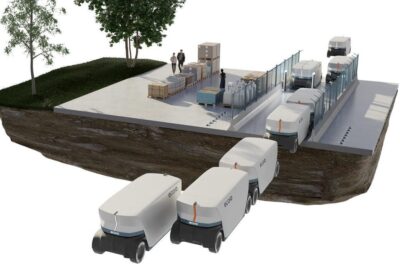

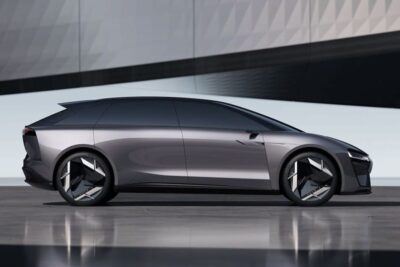
0 Comments